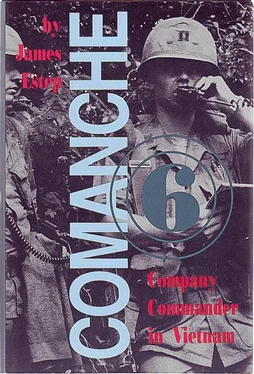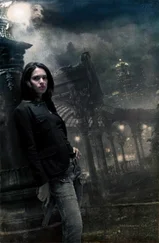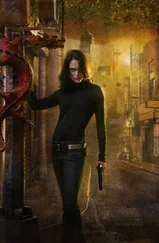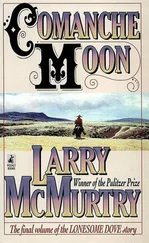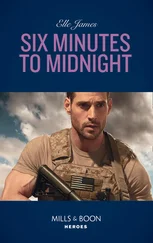“Nearly did. Charlie put one right through the center of my chest. Missed the ticker by a quarter of an inch, missed my spine by ‘bout as much. Collapsed a lung and tore up some other stuff. But, shit, Charlie should’ve known he can’t kill a captain, ex-sergeant major! I mean, he’s dusted off quite a few sergeant majors and a whole slew of you captains, but I’ll just bet he ain’t never yet got a captain-sergean’t major!”
“Well, I’m just happy as hell to see you… uh… Top.”
“Yeah,” he said, smiling uneasily, “don’t really know what happened to Russell. Heard he bought it up in the A Shau.” He paused, visibly shaken, then with uninvited tears forming in his eyes, added, “He was a hell of a good officer. Twice the officer I’ll ever be.”
After an uncomfortable lull, I said, “Well, shit, how the hell you doing? Look great!”
“Feel great, Jim. It was touch and go for a while in the Nam, but once I went stable and they decided I wasn’t a candidate for Arlington’s marble orchard, they shipped me out to the Philippines. Spent some time there, and then, after I raised some sergeant major-type hell in Angeles City one night, the medical powers decided it was time to forward me to Walter Reed for ‘additional tests.” Got in yesterday.”
“Super! They got you in the pit here?”
“Naw, ain’t nothing orthopedic ‘bout me. I’m upstairs, just a stone’s throw from Ike, as a matter of fact.”
“Great!” I replied, smiling. “Ex-president of the United States and ex-sergeant major of the best goddamn outfit in the Army up there rubbing elbows.”
“Well, we ain’t exactly that close yet, but give me a couple days, Jim. Hell, always wanted to talk to Ike, wanted to ask him how he got us out of Korea so quick after becoming our commander in chief. Thought I might be able to pass this info along to our present commander in chief, who don’t seem to have a fucking clue ‘bout how he’s gonna get us out of the Nam.”
“Yeah,” I replied, “think we missed a good bet by not taking it to North Vietnam right after Tet. Hell, we had Charlie on the ropes…”
“And going down for the count, Jim,” he chimed in. “But we didn’t have to invade the north to win. Didn’t have to change much of anything. All we had to do was lock old LBJ in a woodshed somewhere and keep plugging away at Charlie, north and south, ‘fore he had a chance to get his second wind.”
“Well, I agree. But maybe… hey, what do I call you now, anyway?
Sergeant Major is hardly appropriate.”
“Call me Coop, and there ain’t no maybe about it. If we hadn’t thrown in the towel, if we’d kept bombing up north—really bombing ’em—if Uncle Ho thought we were still in there for the win after the losses he suffered in Tet… well you can bet your sweet ass the peace delegation in Paris would have been talking ‘bout something besides the shape of the fucking table!”
“You’re preaching to the choir, Coop.”
“But we didn’t lock our commander in chief in the woodshed,” he continued, an anguished look about him. “And if the message he sent to Uncle Ho was the wrong one, the message he sent to snuffie was a hell of a lot worse. I mean what’s snuffie supposed to think when his supreme commander, the president of these United States, says, ‘Hey, guys, I’m calling it quits. Ain’t gonna be no victory, ‘cause we’re getting out soon as I can find a way to do it without winning. In the meantime, I’d like you to just keep on fighting and dying same as if I weren’t saying any of this, okay?” Well, Jim, you cannot expect an American field army, any field army, for that matter, to fight very well or very long on guidance like that. Mark my words: the Army’s gonna tear itself apart in Vietnam.”
“Yeah,” I responded, “Sergeant Sullivan said it’d turn itself inside out if something like this happened. And, Coop, he predicted it would happen, right after Tet!”
“Well, the Bull was right,” Cooper said. “Hey, by the way, you hear that Naple got hit?”
“Yeah, but don’t know much about it. What happened?”
“Not sure myself. Heard the U.S. Navy put a salvo of rockets in Charlie Company’s NDP not long after you caught your dust off. You know our Navy. Probably mistook your company for a Viet Cong submarine lurking about a mile or so inland. Understandable mistake.
Anyway, Naple got hit bad, but last I heard he still had all his limbs and all his senses and was on the mend. Uh… remember that black point man of his, Wester? Think the two of ’em, Naple and Wester, pulled you out of the paddy north of Hue.”
I nodded, fearing the worst.
“He got hit bad a short time later, think it was up in the A Shau. Head wound, heard he lost his eyesight.”
“Fuck,” I said, suddenly wishing I could be the one to lock our commander in chief in a woodshed.
“Yeah, the blind ones are the worst,” Coop commented.
In May of 1969, a year and two months after being felled in that putrid rice paddy, I departed Walter Reed. As the taxi wound its way through Silver Springs, I suddenly realized I’d been mistaken in my initial assessment of duty at the hospital. It had not been “just another tour.” It had been a tour of unpleasant excesses. Too much pain, trauma, tears, blood, and drugs. Too many saddened mothers and fathers, uncomprehending children, shocked—and in some cases adulterous wives, and plainly disinterested but duty-bound relatives. And too many crippled warriors who would have to go through life wondering if their sacrifice had been in vain.
However, if not an uplifting experience, it had in many ways been a positive one. I had seen my fellow patients, the pit crew, daily display a bravery, a heart-rending courage, that one only occasionally sees on the battlefield. And I had witnessed a hospital staff routinely demonstrate a compassion and dedication that would have put Florence Nightingale to shame.
Nearly three years after limping out of Walter Reed’s front portals, on the eve of my fourth and final tour in the Nam, I received an invitation from the hospital’s staff asking that I attend the formal closing of the snake pit. The war, for all practical purposes, was over, and there was no longer a need for the pit.
I did not attend. I wish I had.
25. Fort Benning, Georgia: Spring 1970
I spent the next couple of years doing what many other Indochina returnees were doing—recuperating from wounds, ending marriages, and pondering what in the hell had happened to the world we once knew. These were harsh years—harsh on those of us who remained in uniform and just as harsh, perhaps more so, on those who returned to America’s civilian community. Collectively, we searched in vain for something meaningful to hang onto. However, contrary to what most of our fellow countrymen now believe, we were not looking for some mythical meaning to the war we had fought or wishfully seeking a grateful nation’s thanks for having done so. We knew the meaning of the war, if not the reason for it. We were searching instead for some purpose in the society we had served, a society that seemed to be casting asunder what many of us thought of as rock-solid, eternally enduring values.
Unable to find what we sought, our malaise often turned to bitterness, and many of us distanced ourselves from an American populace that somehow seemed foreign to us. Of course, our society had not changed—we had. The war had put us in touch with those values others merely speak of. That is the way of war and is perhaps one of its few positive consequences.
Soon after reentering the military’s mainstream, I discovered that our Army, as an institution, was beginning to exhibit many of the same symptoms of apathy and purposelessness that its Vietnam returnees were experiencing as individuals. In 1970, the military’s outlook on the war was undergoing a dramatic change. “Can do, sir!” was rapidly becoming “don’t make waves, sir.”
Читать дальше
